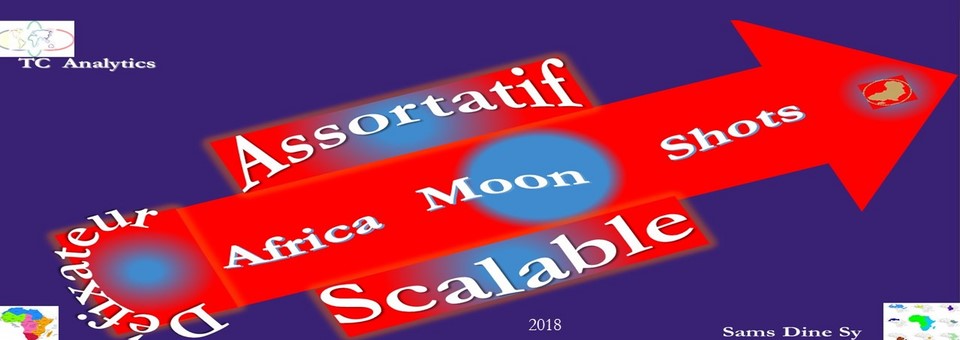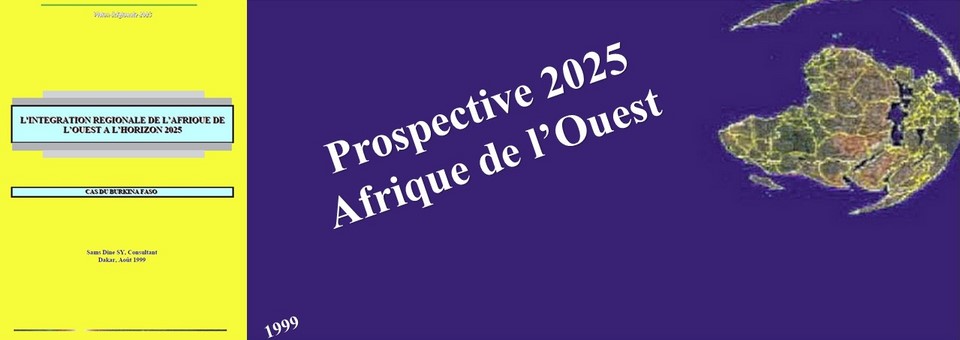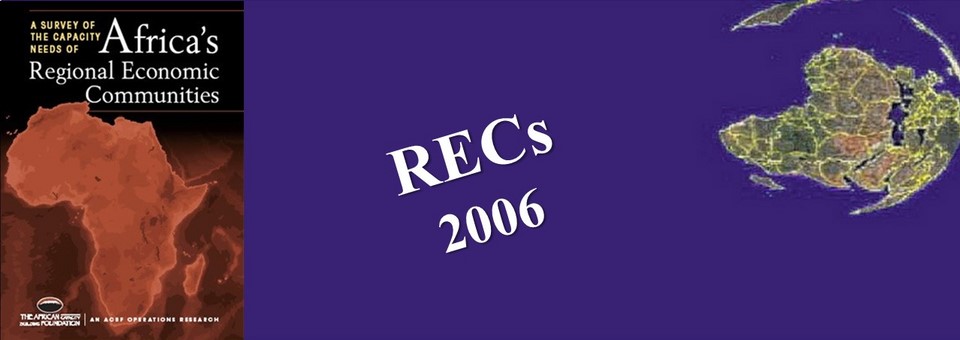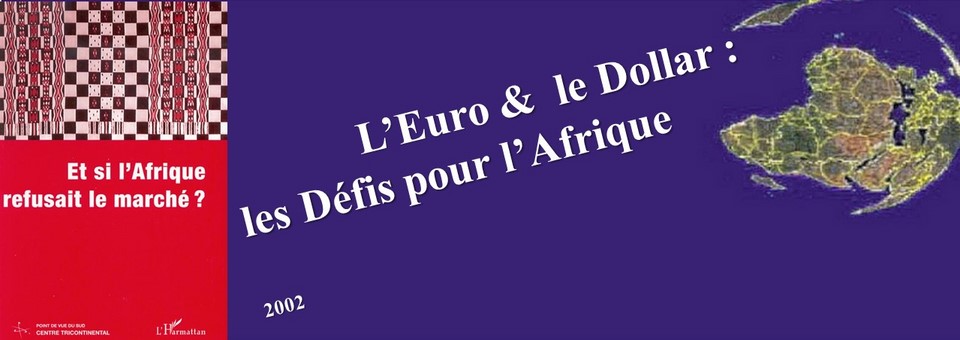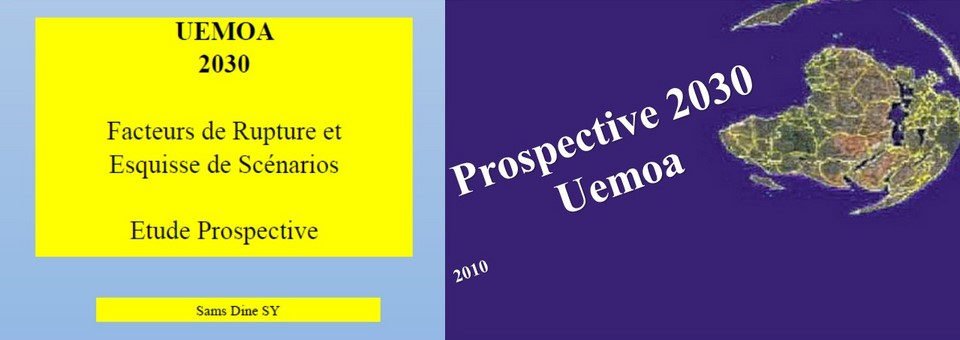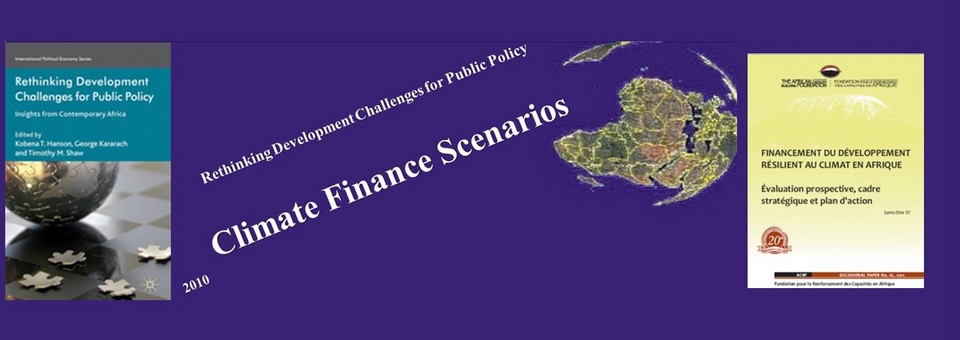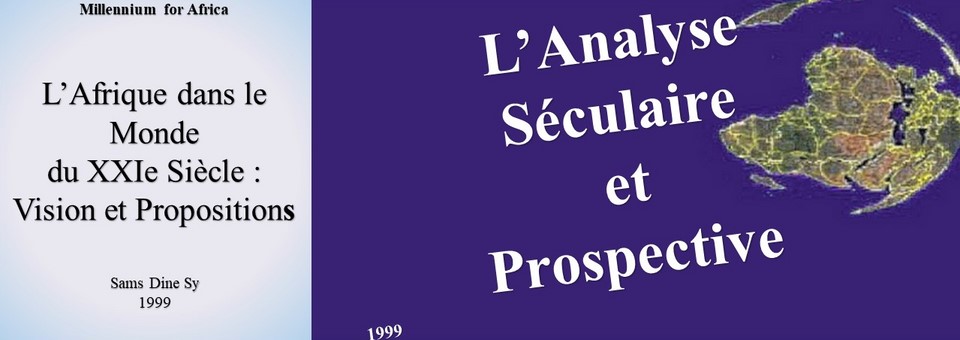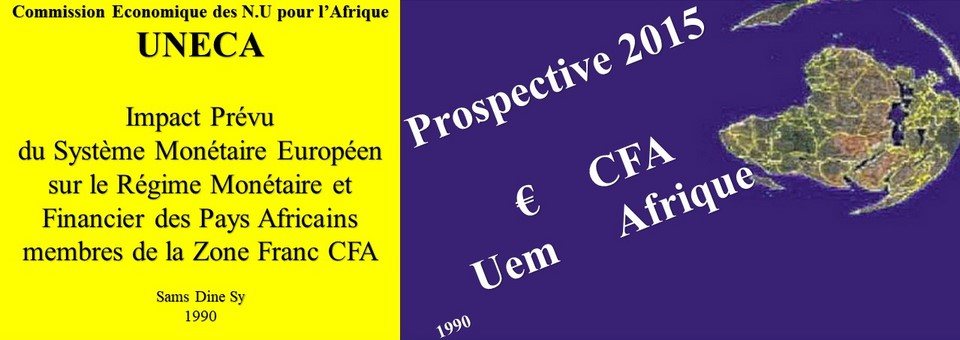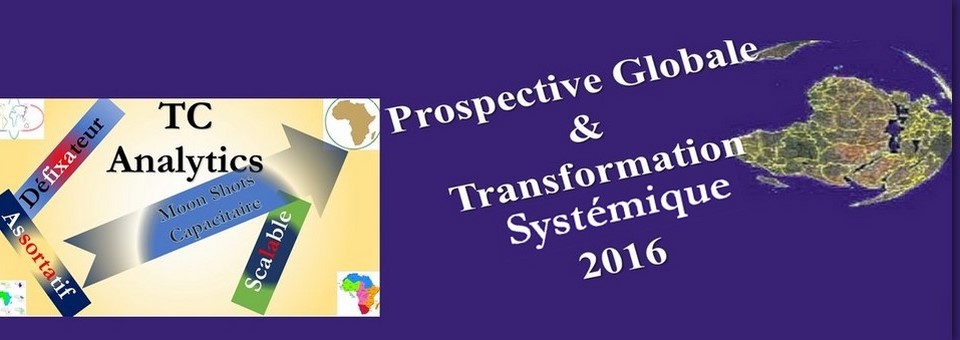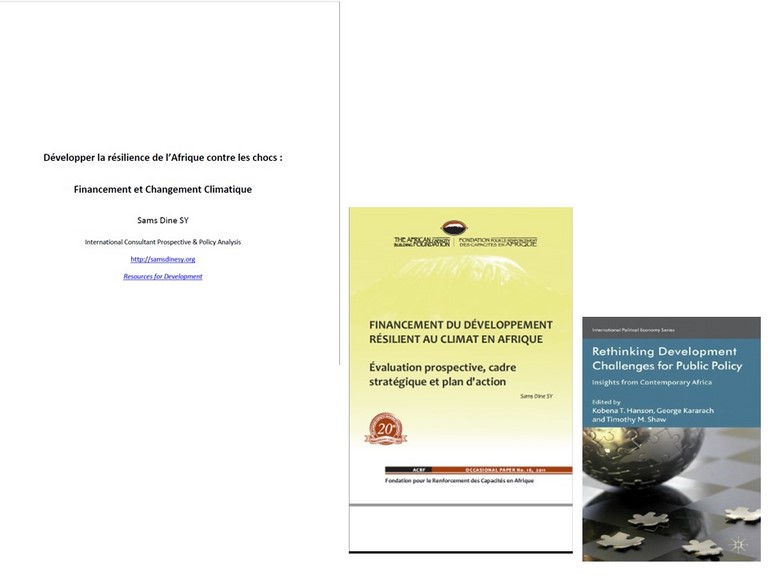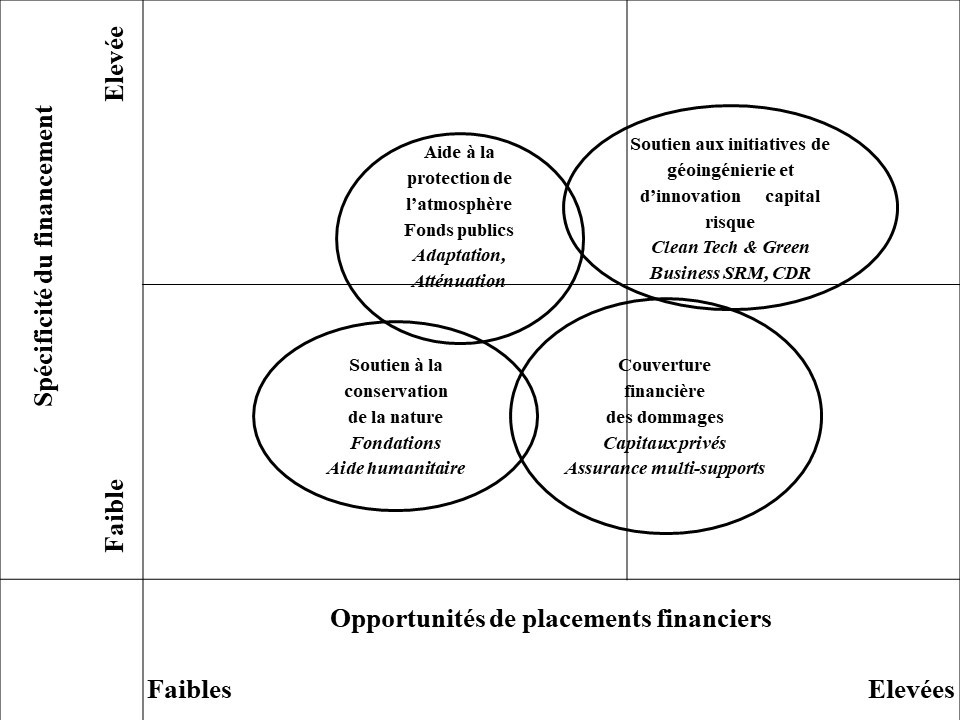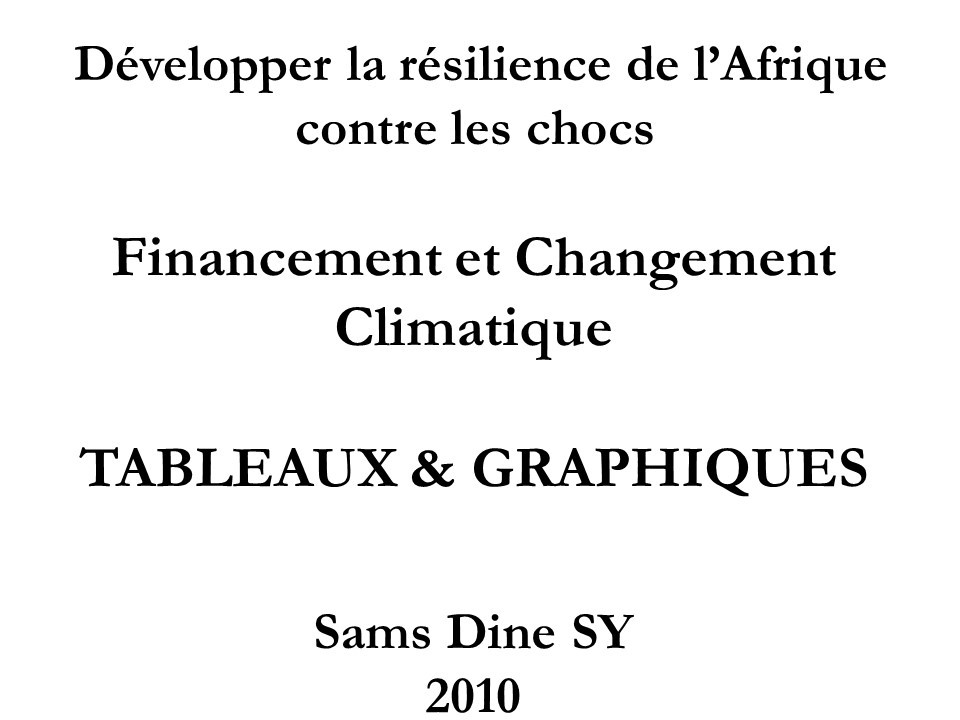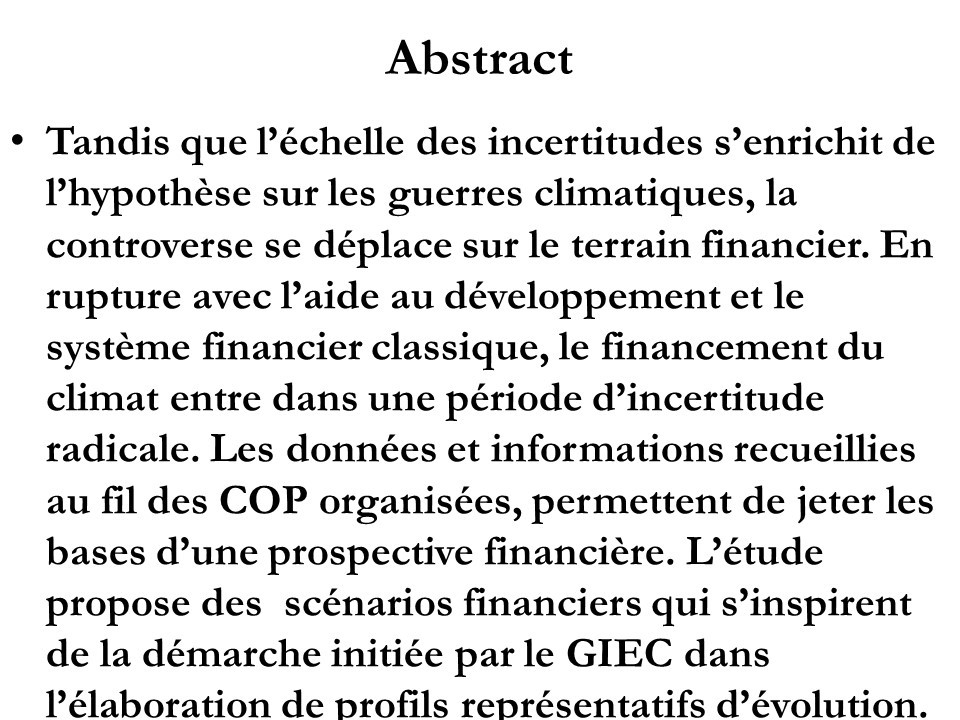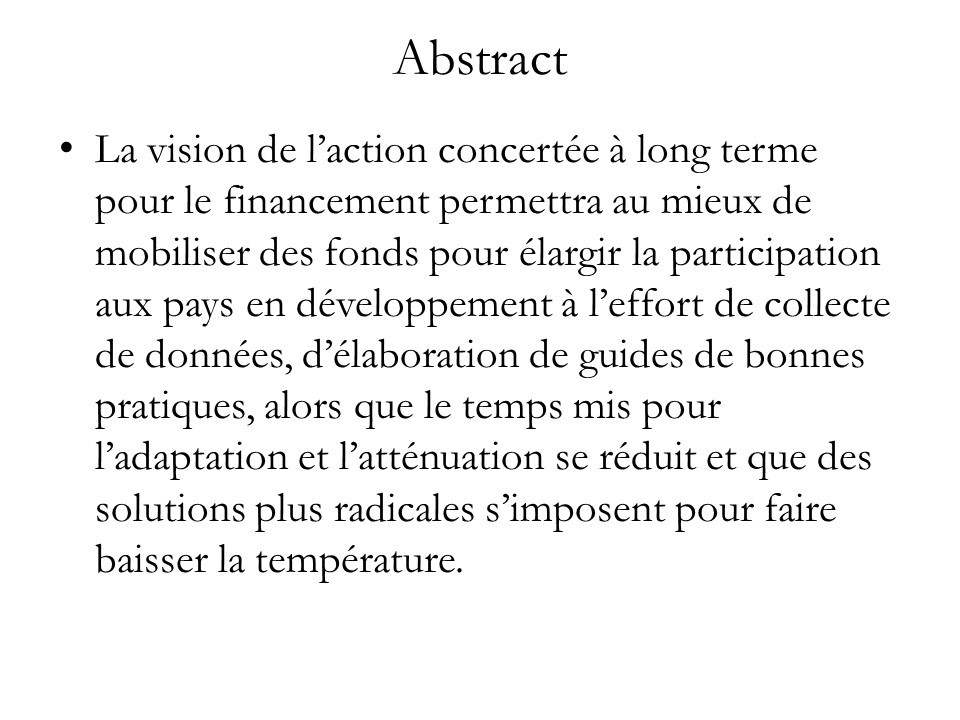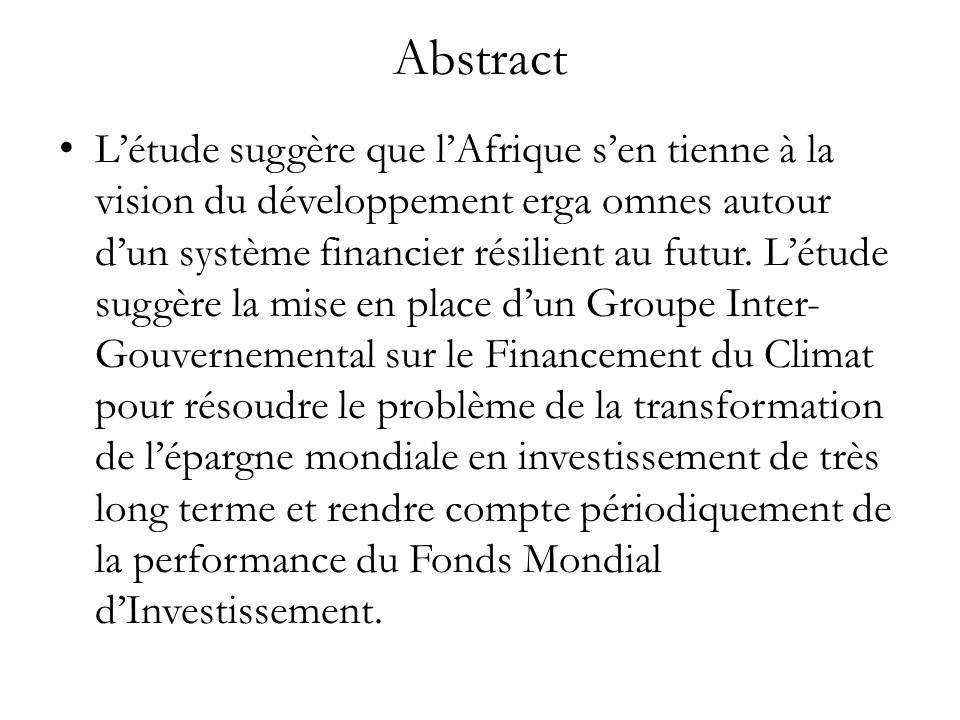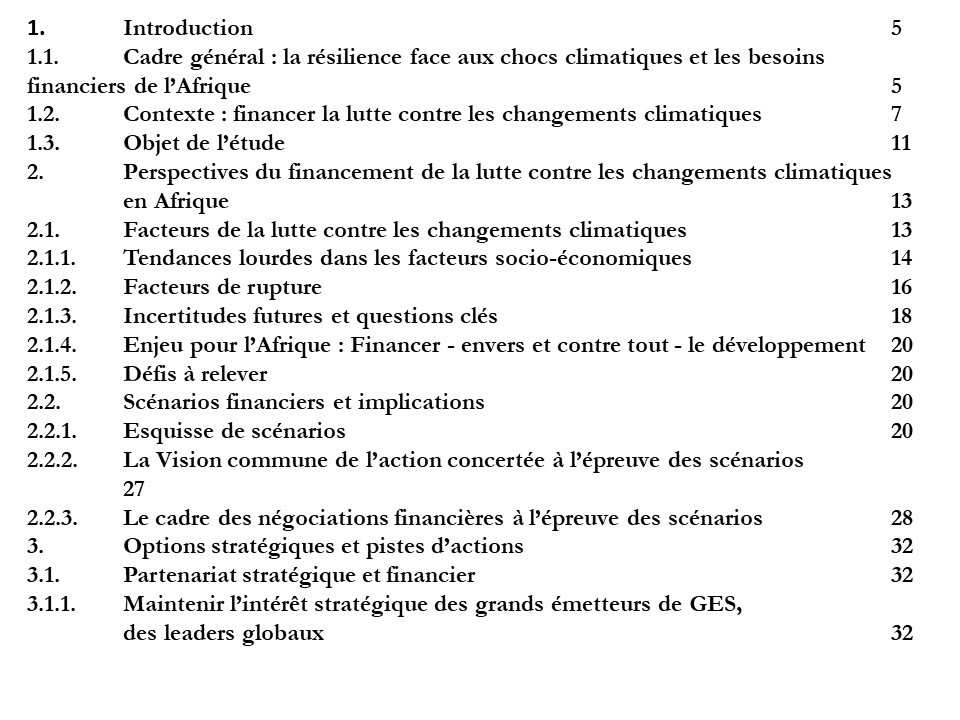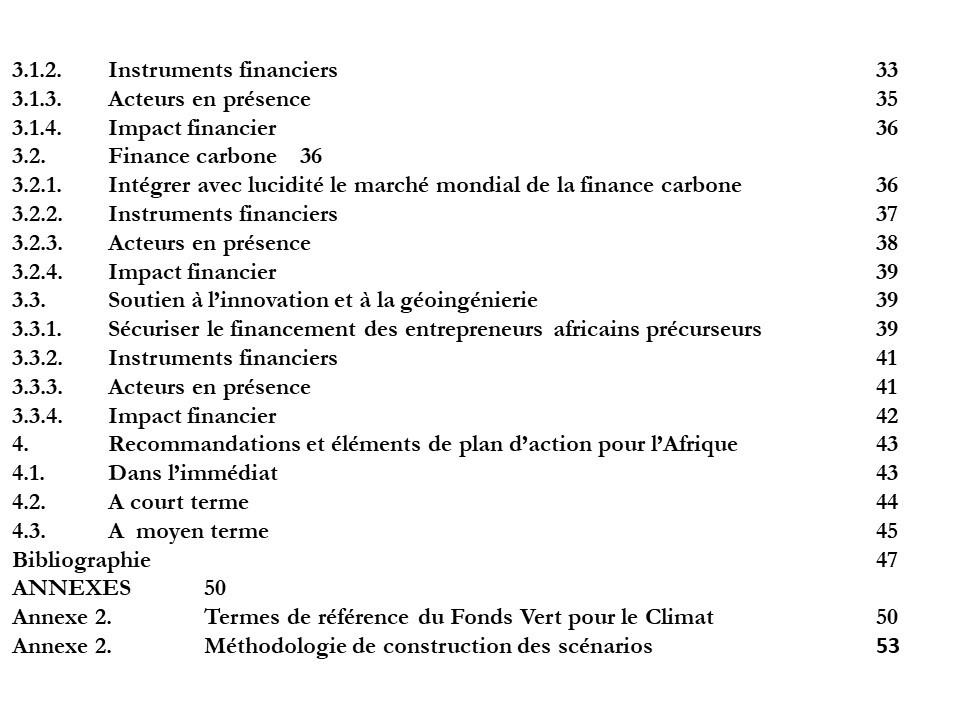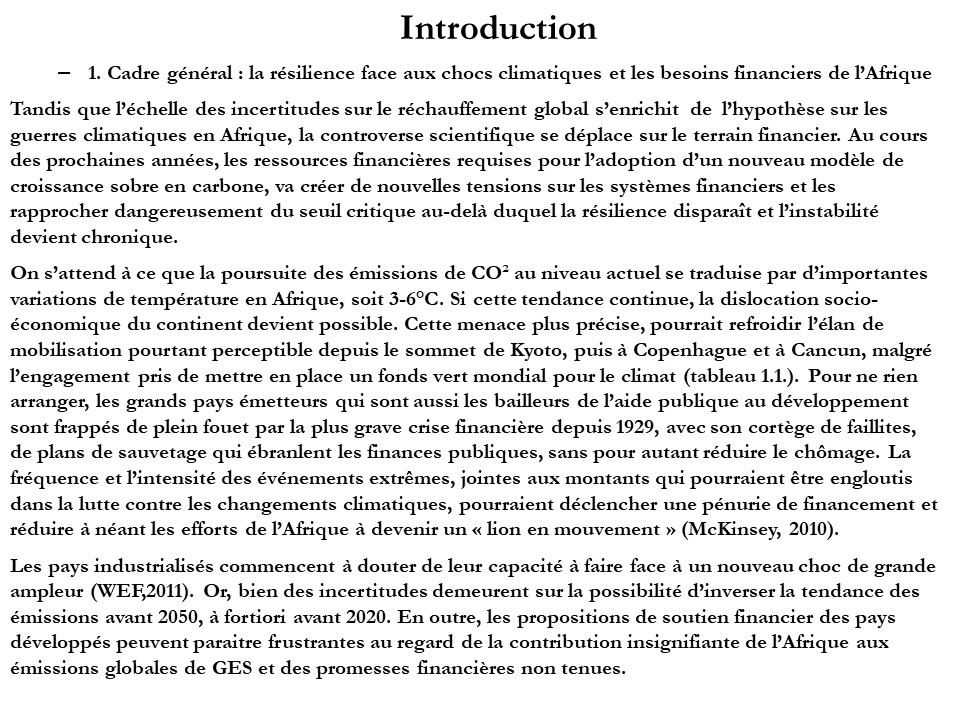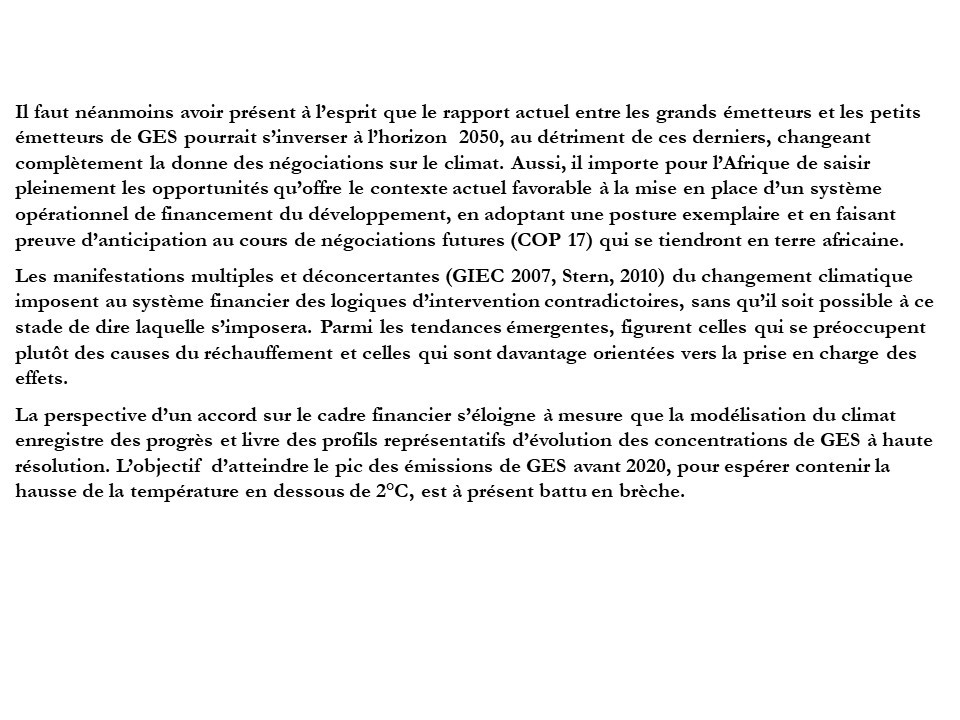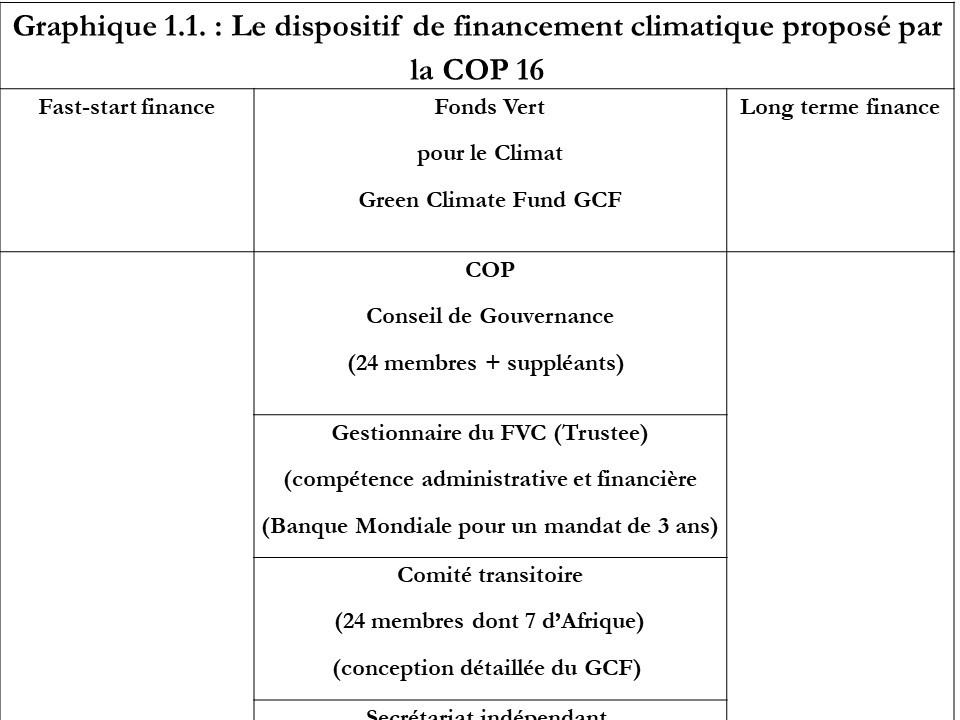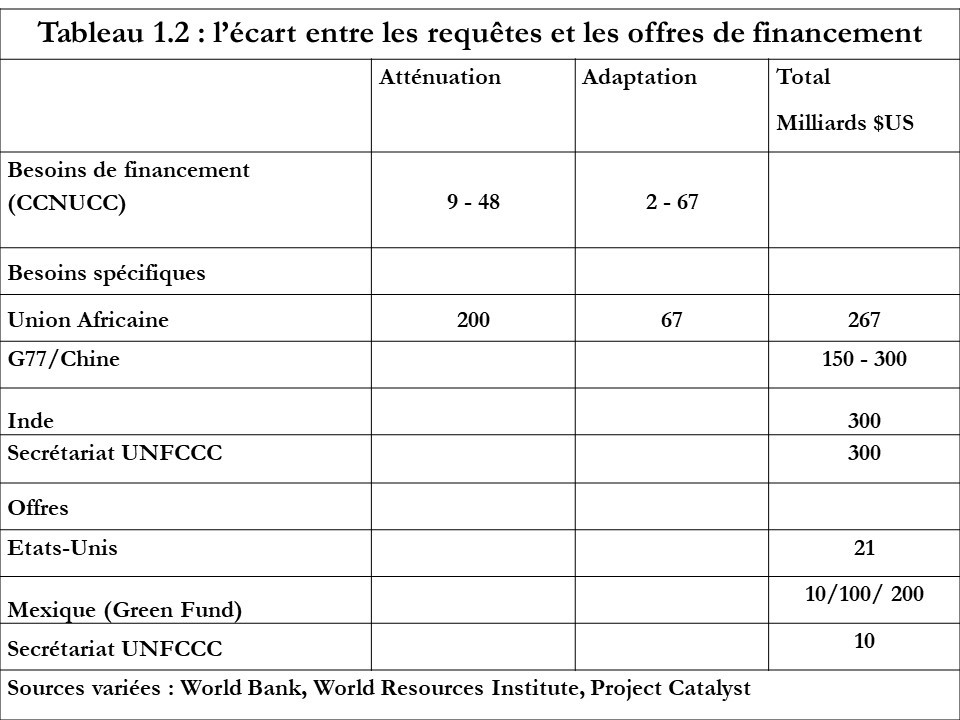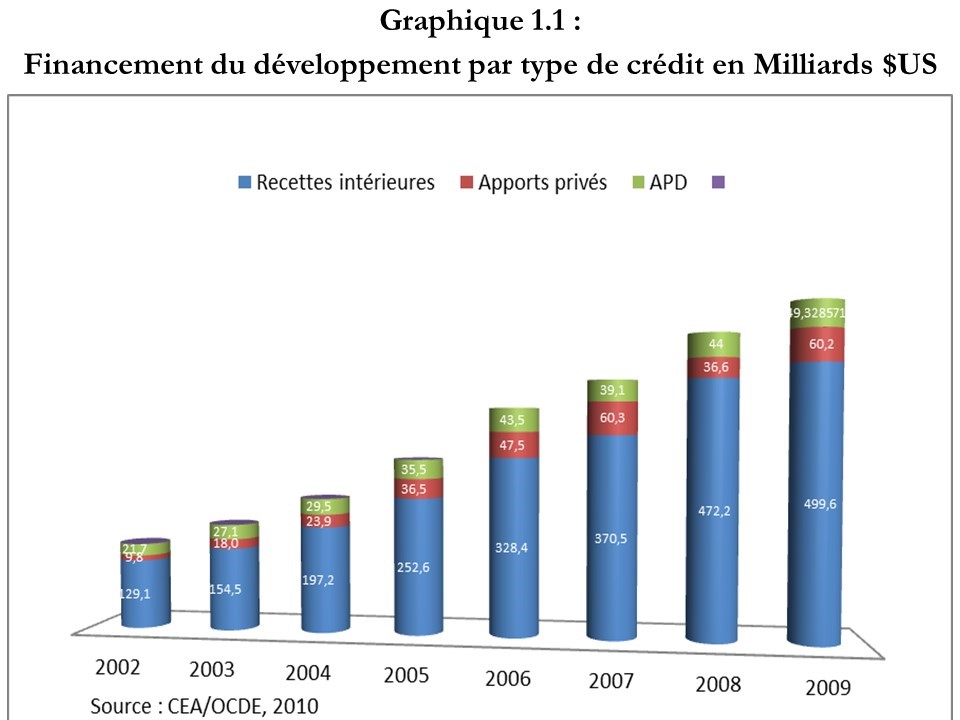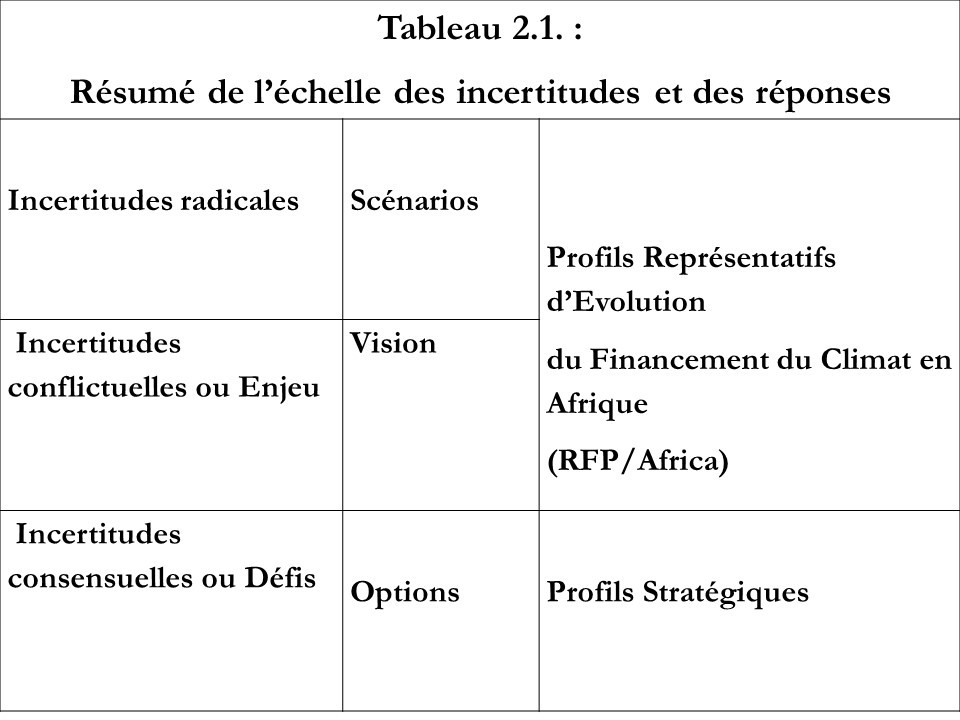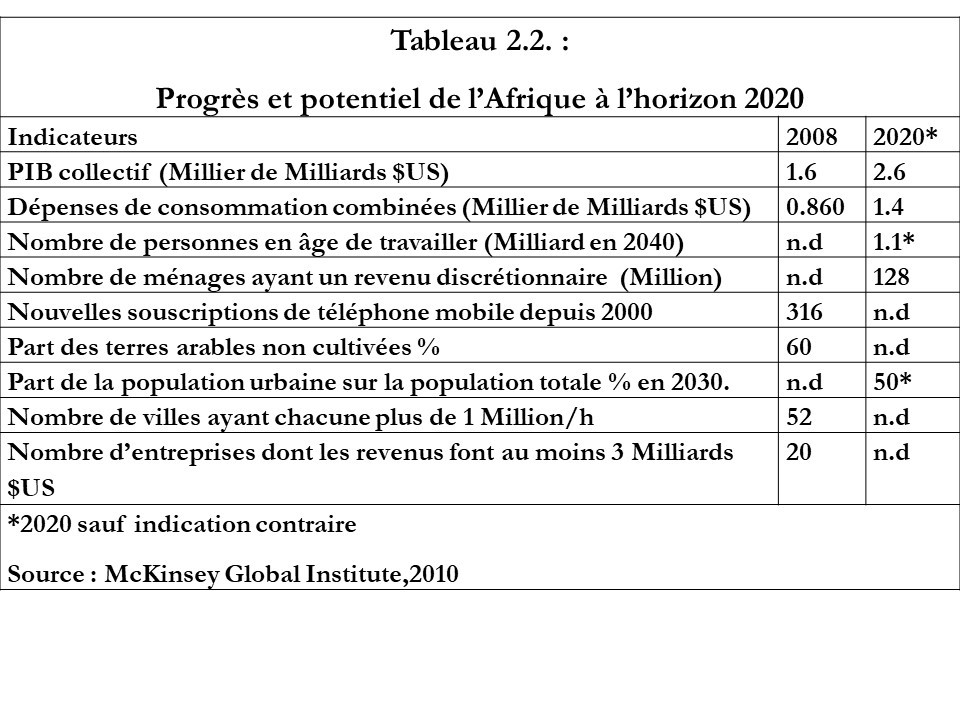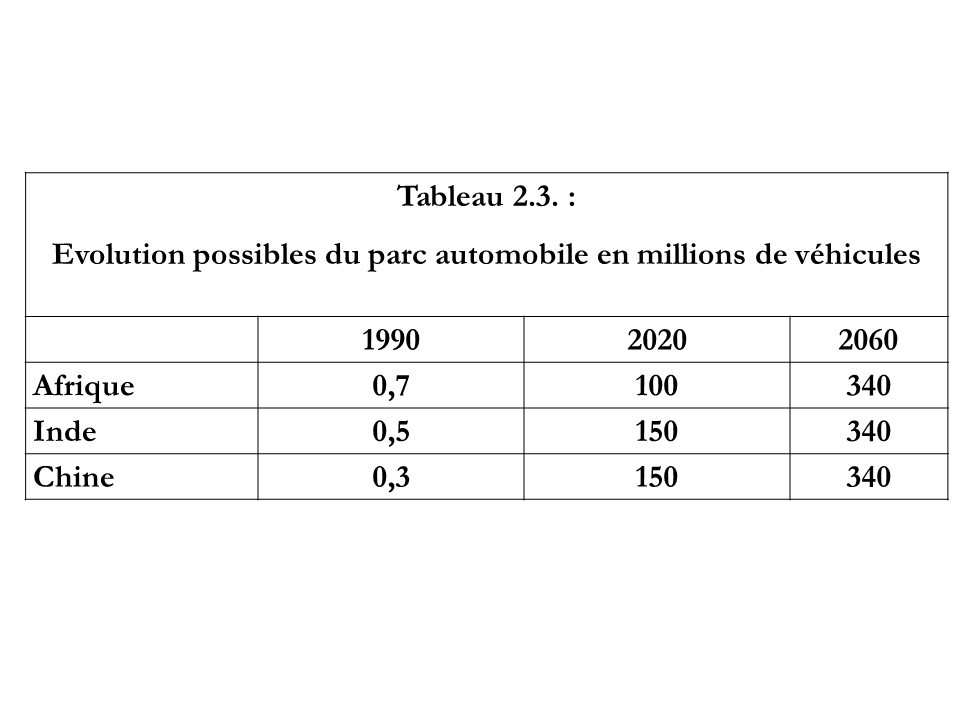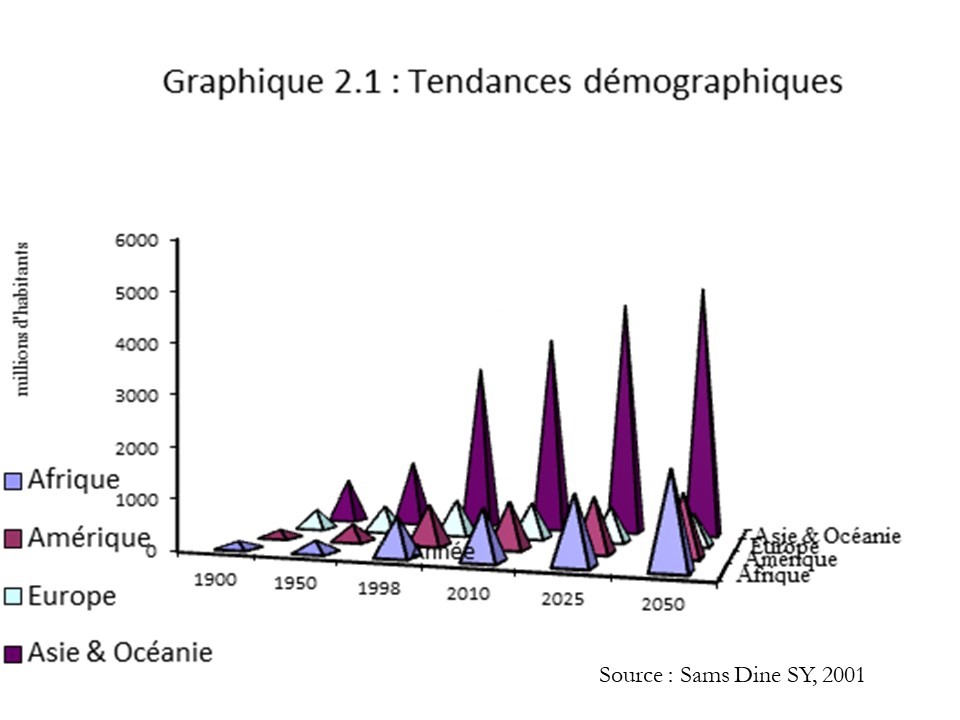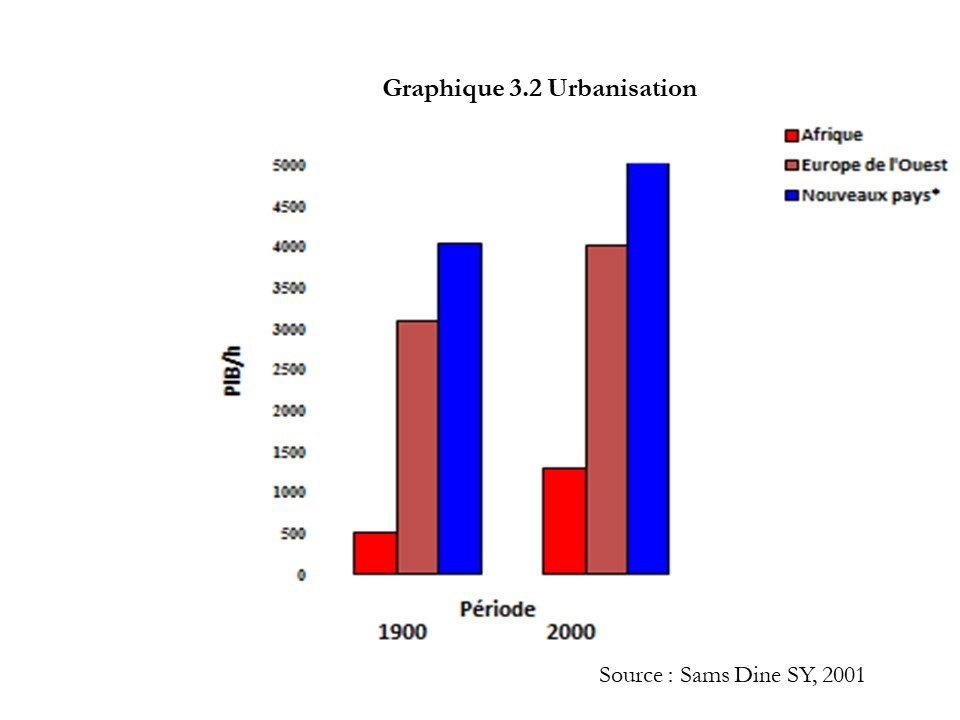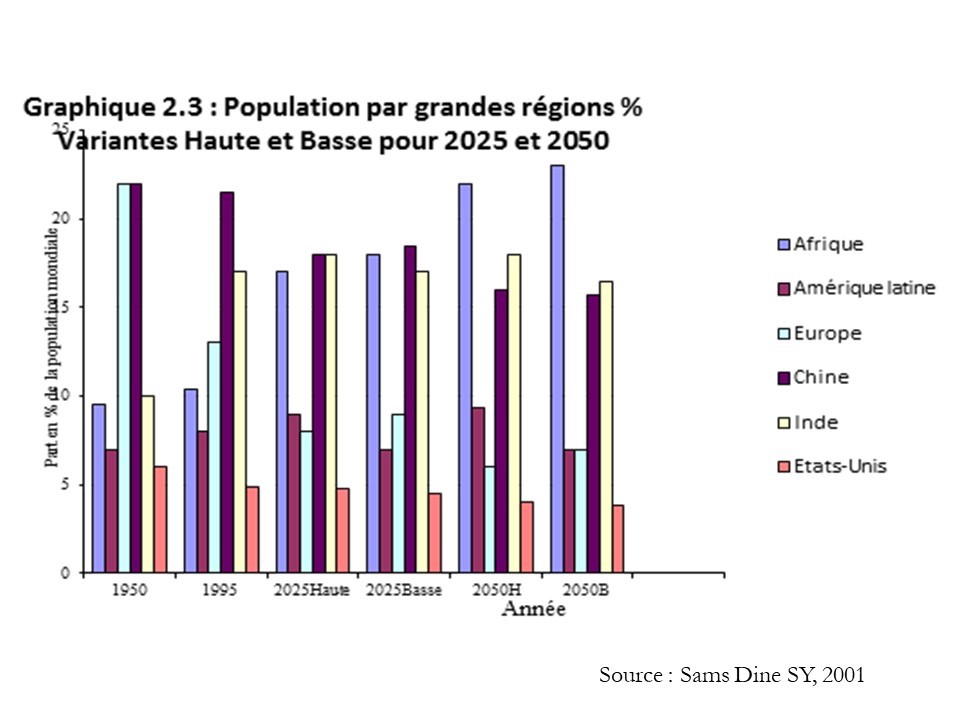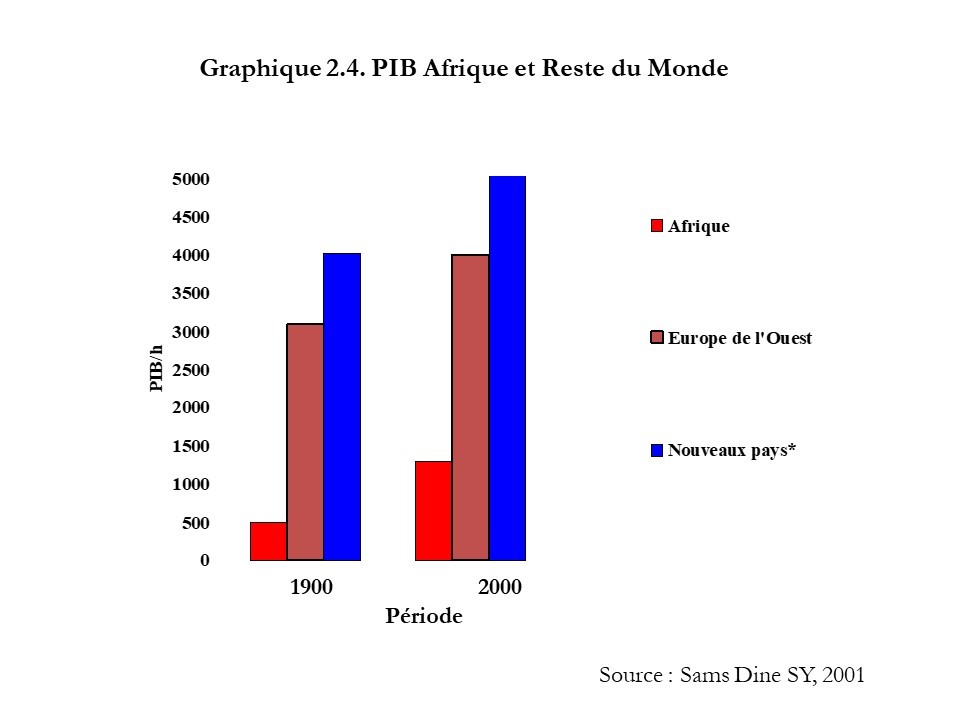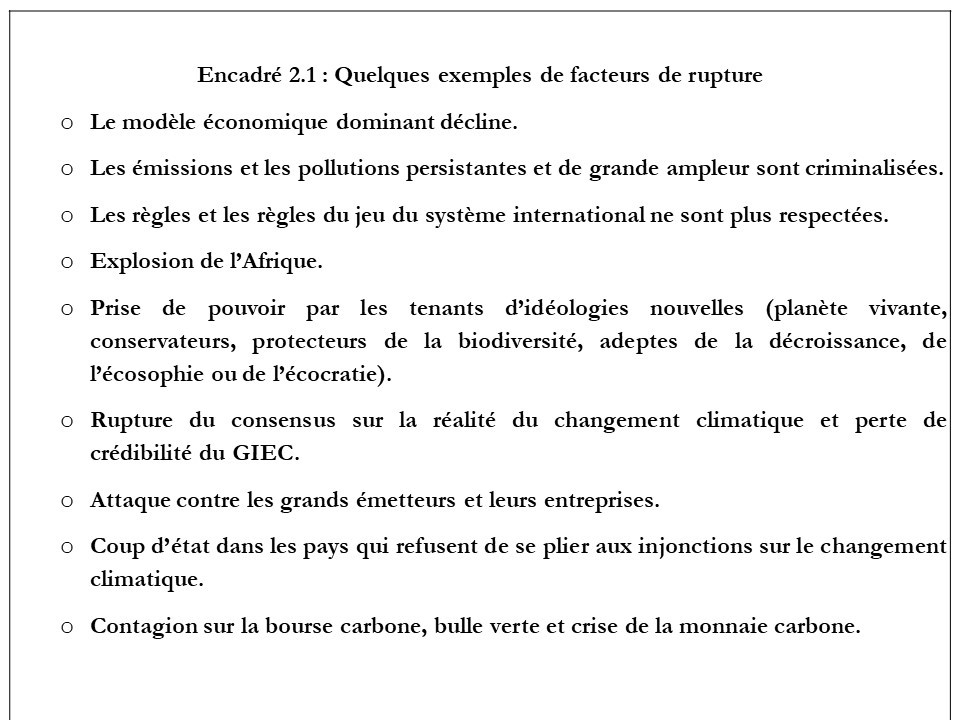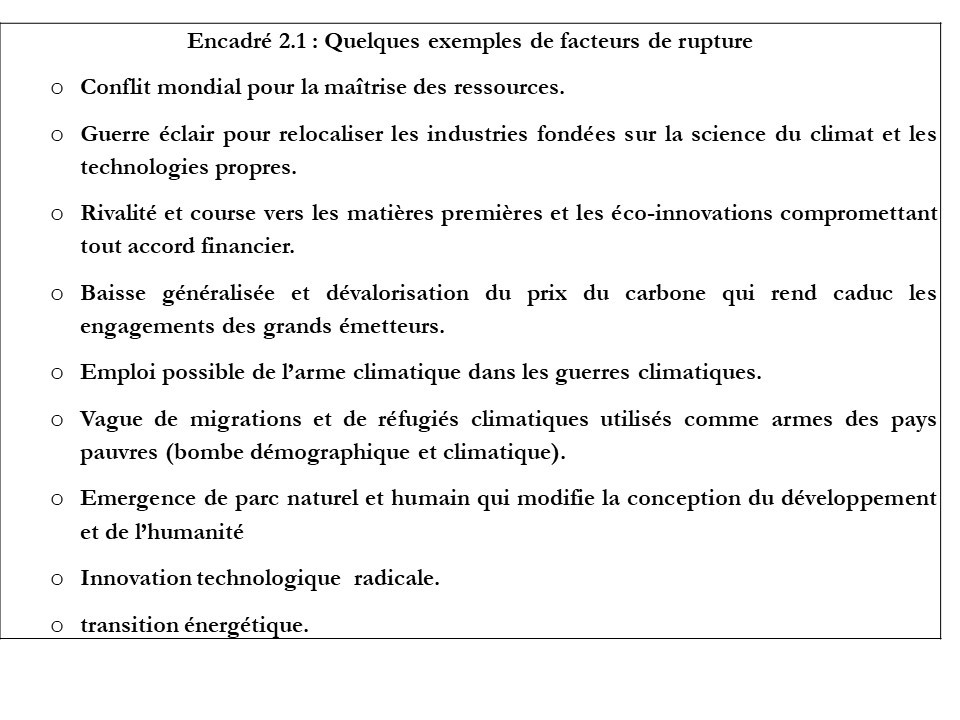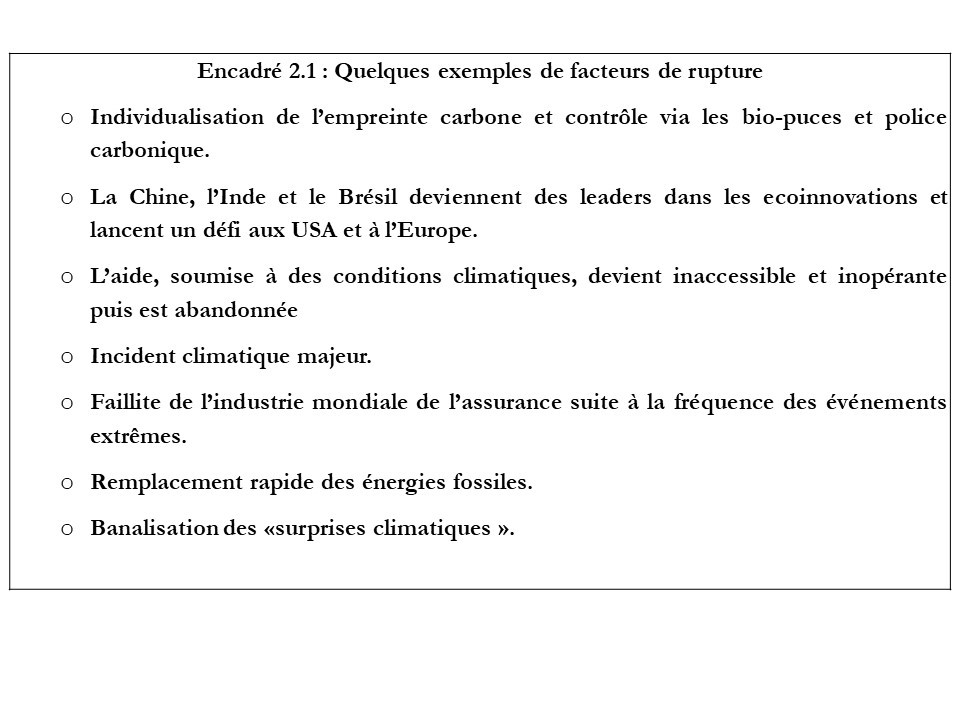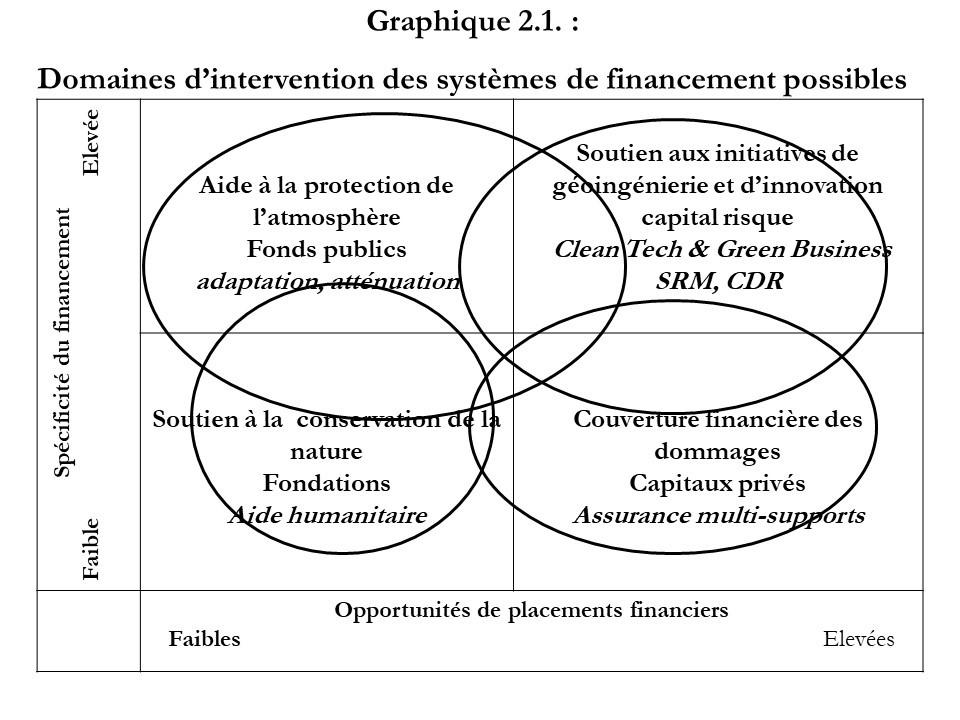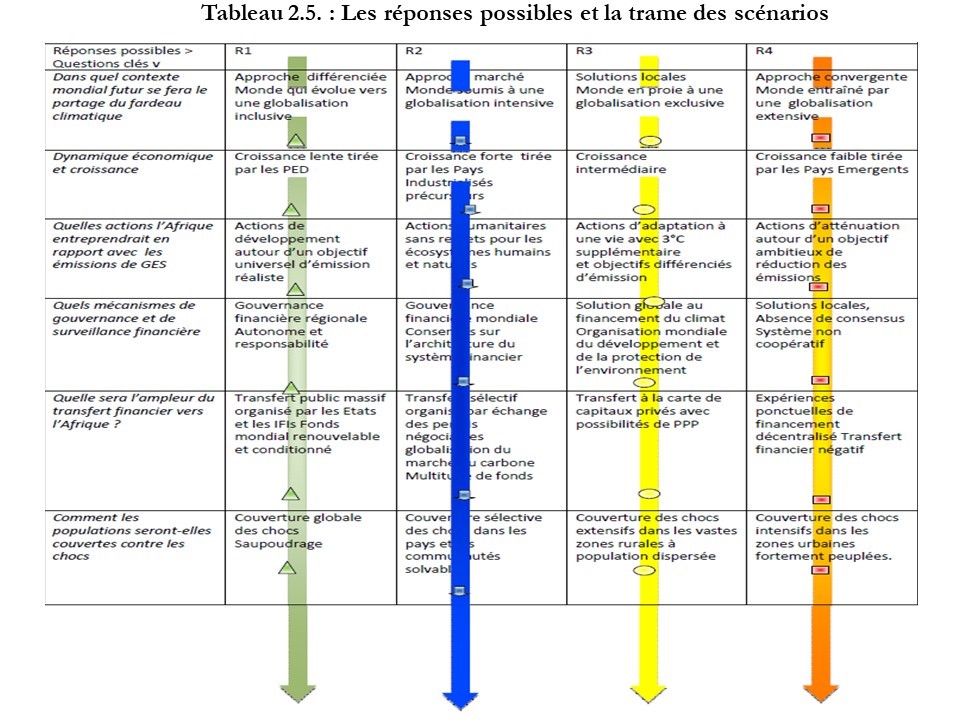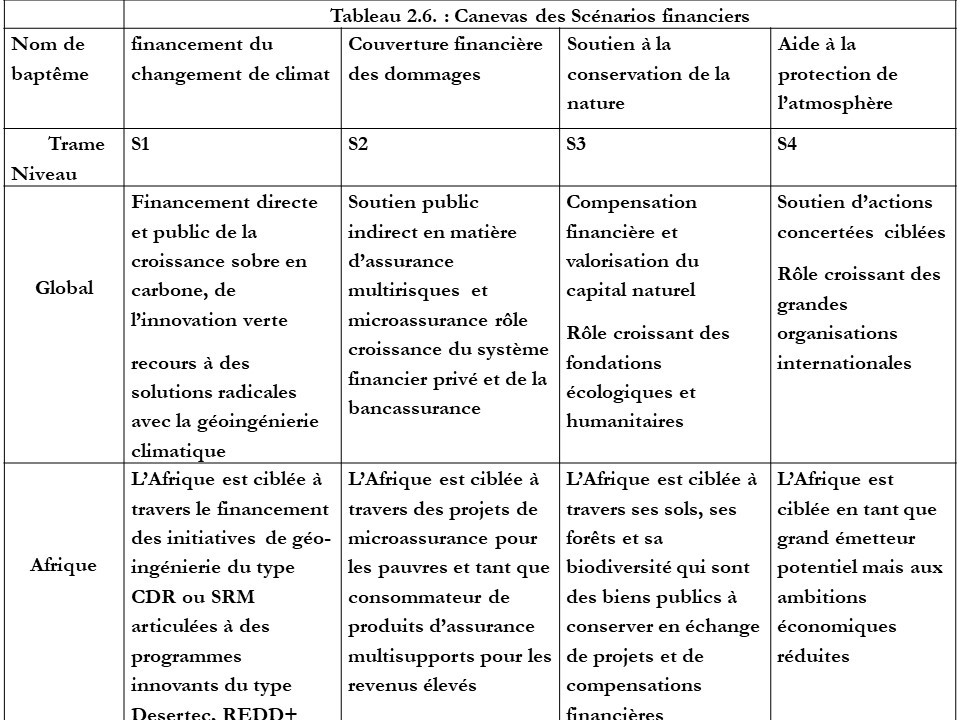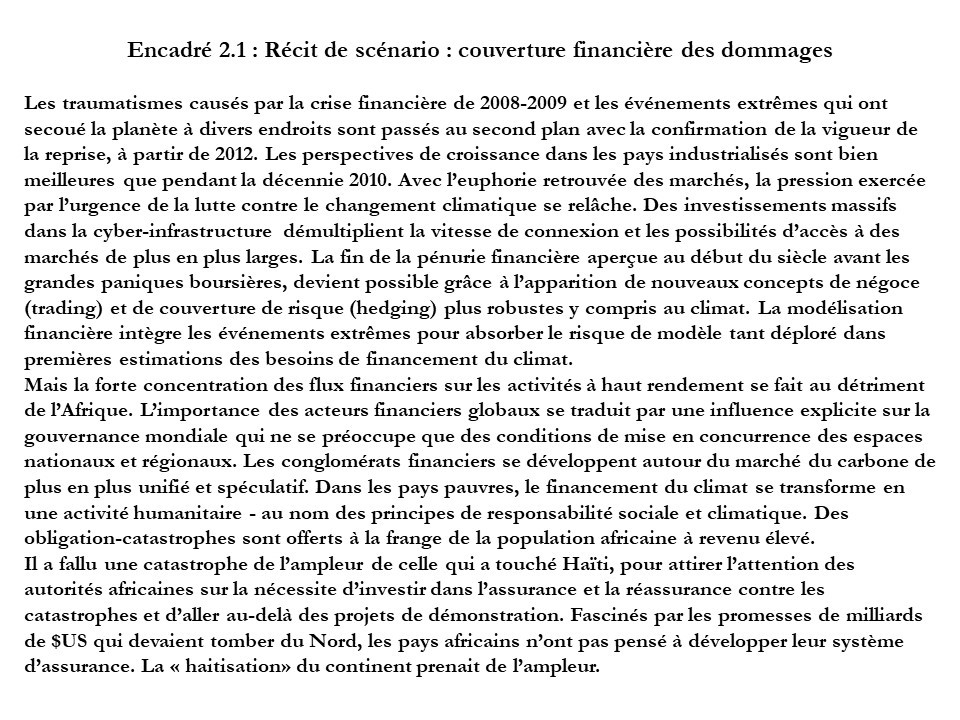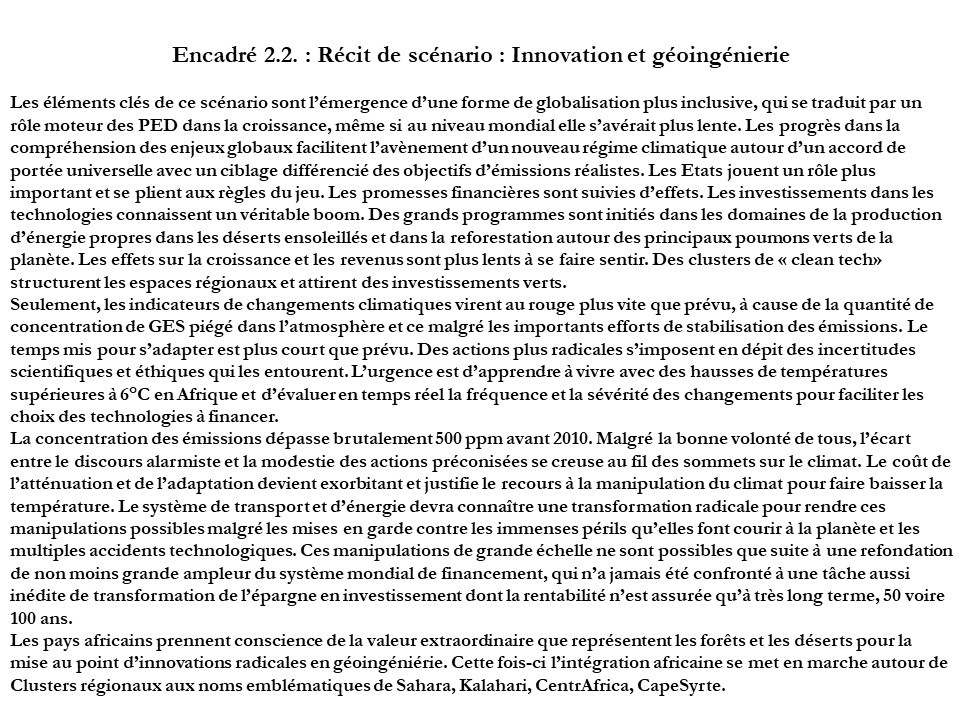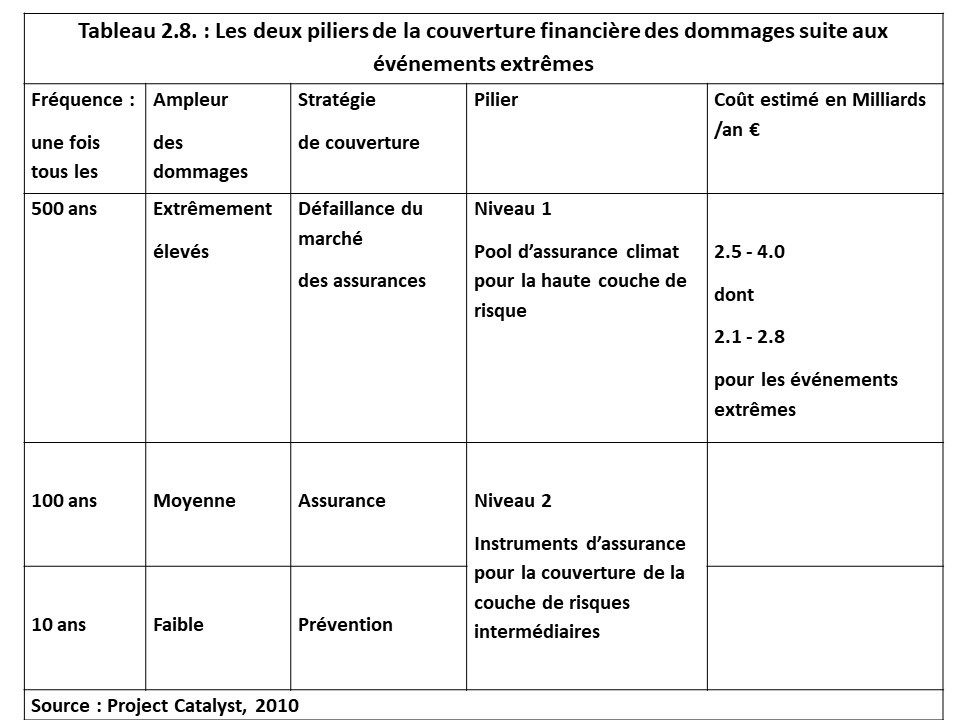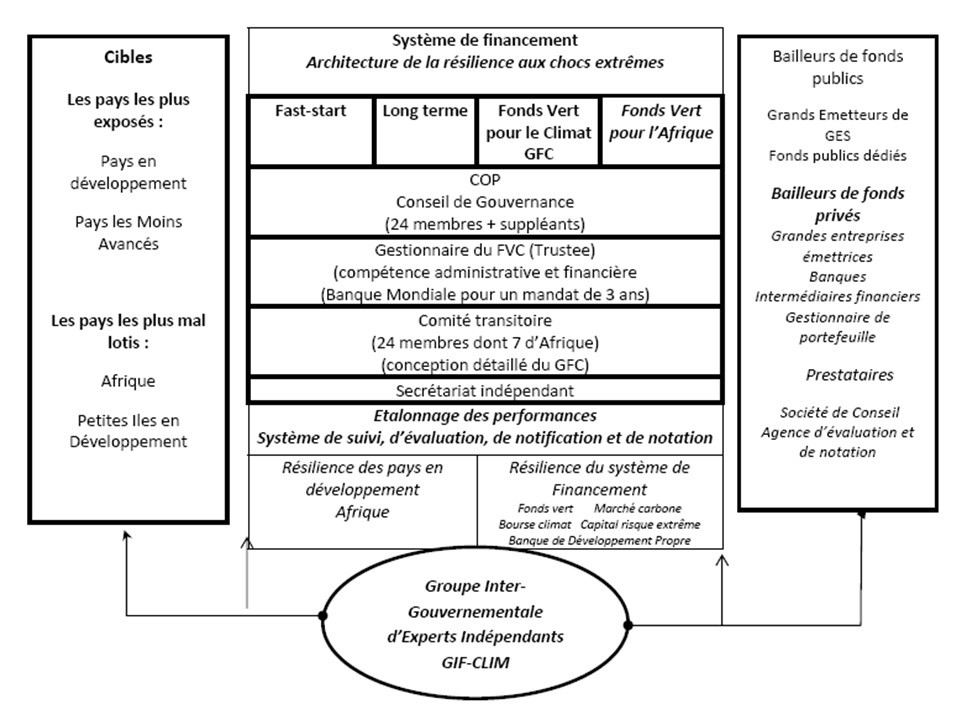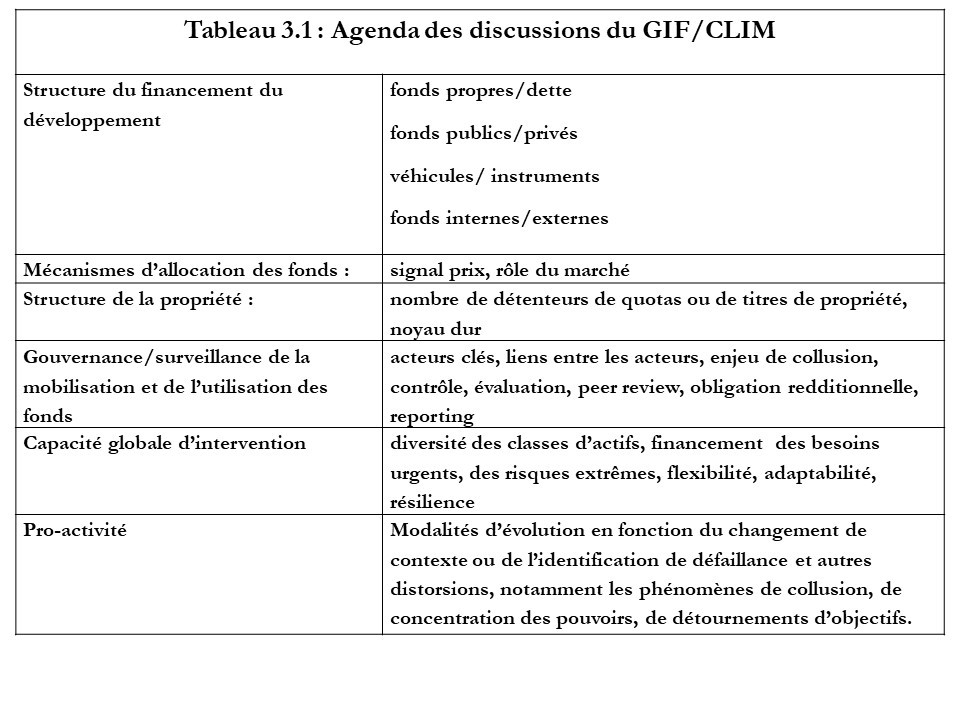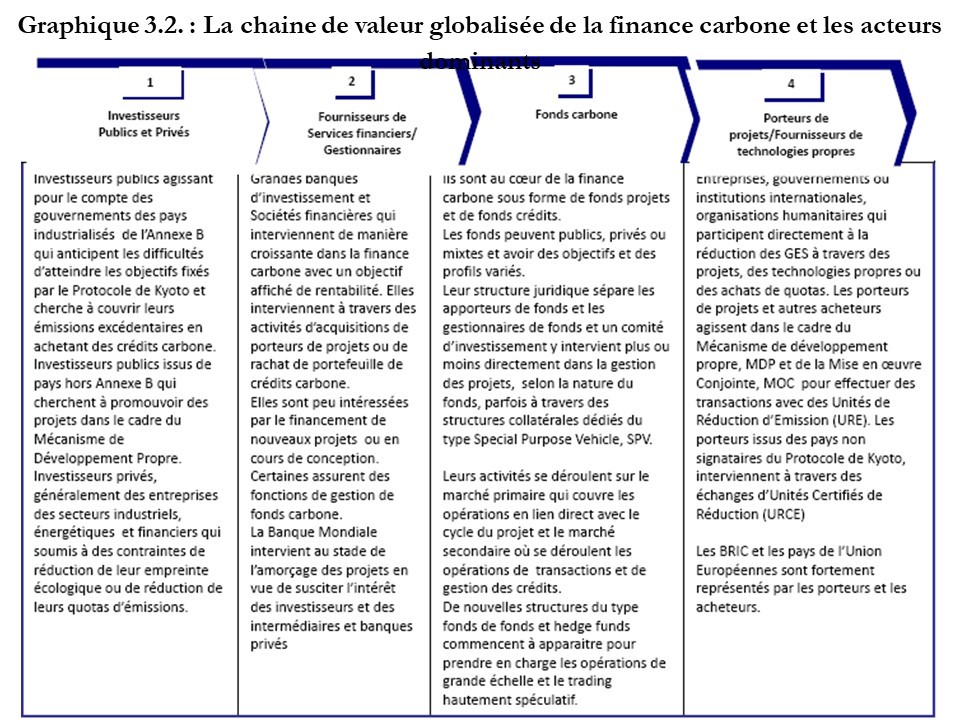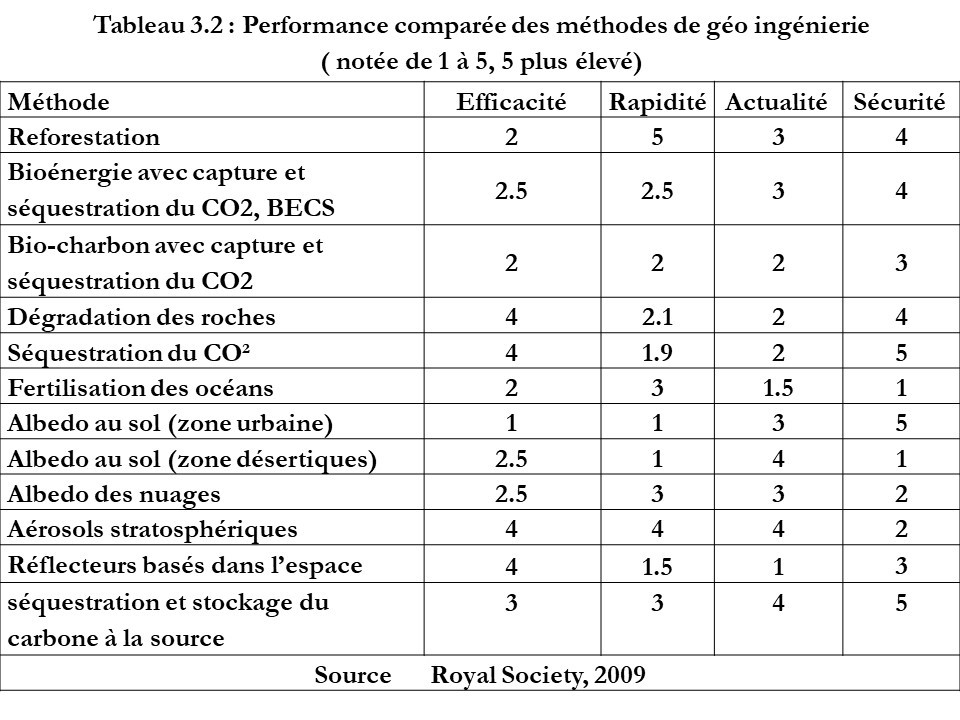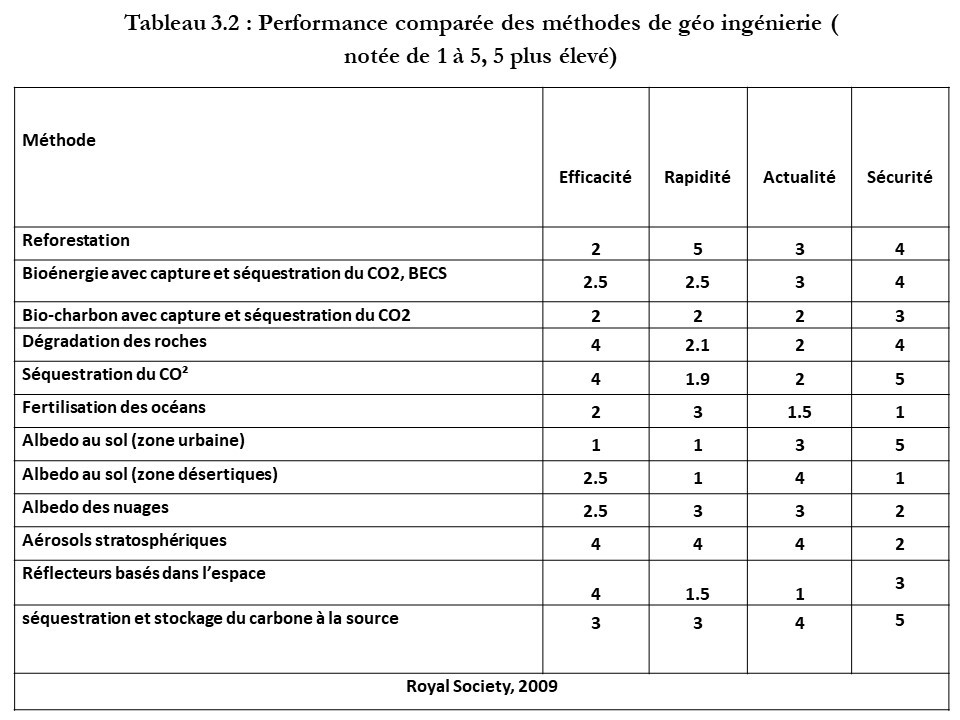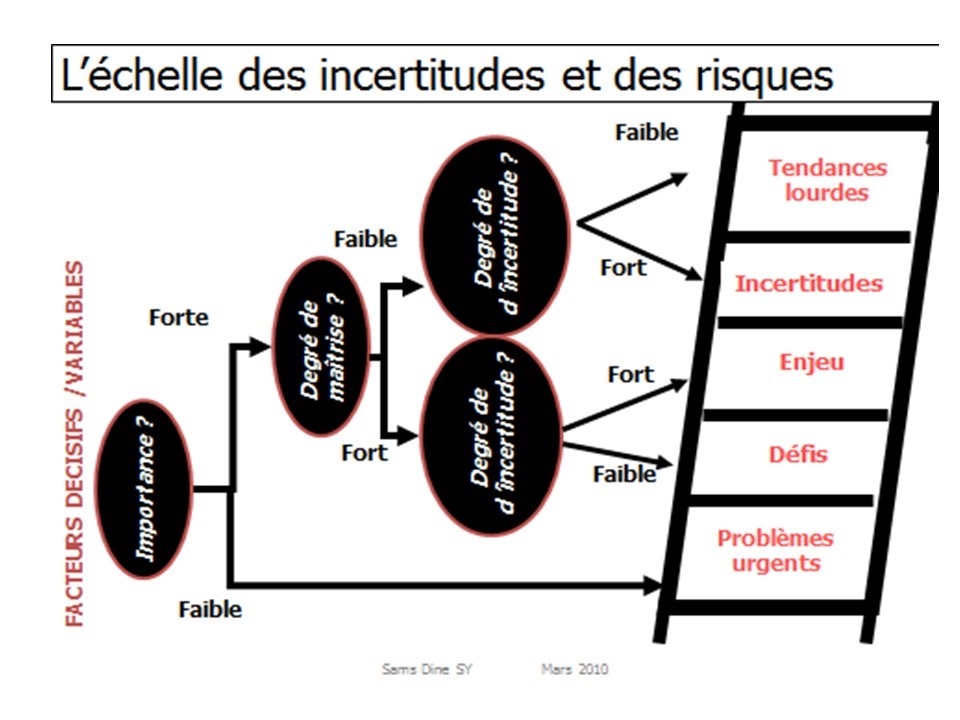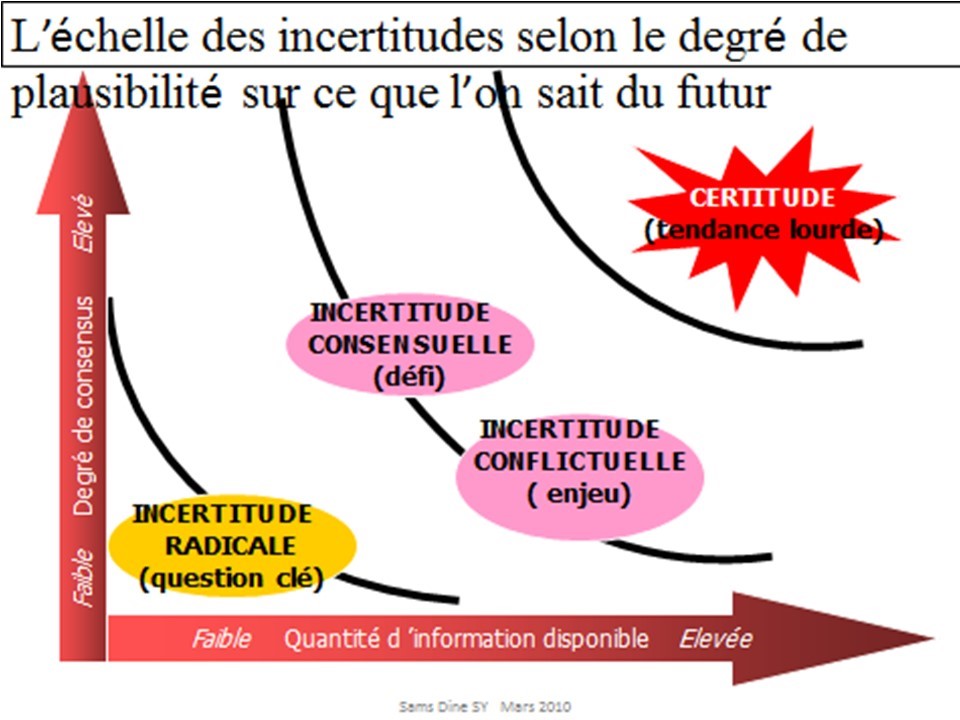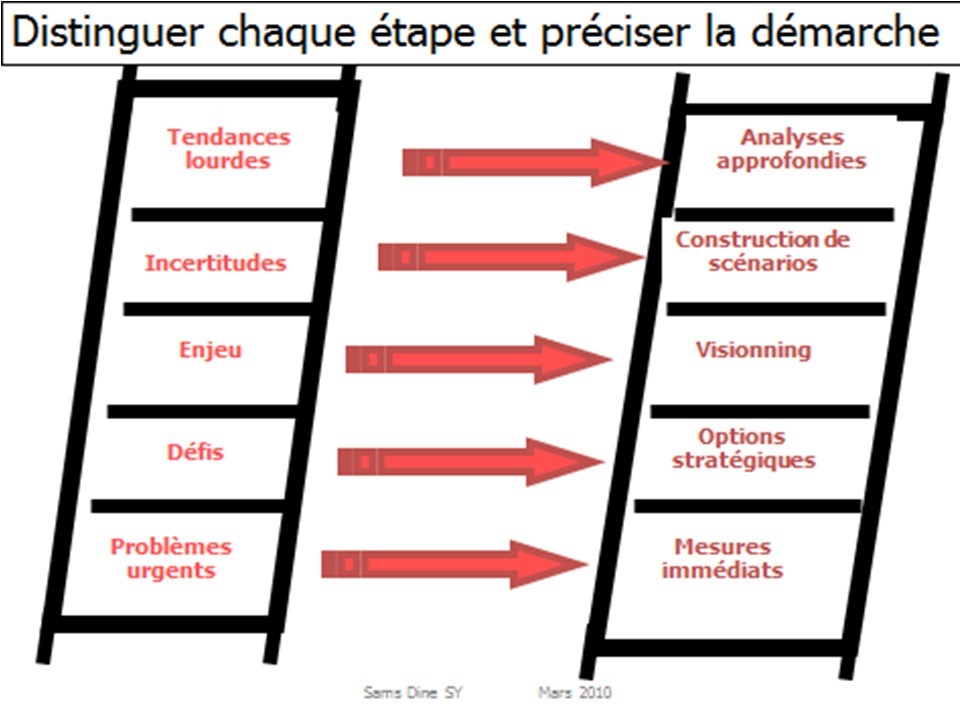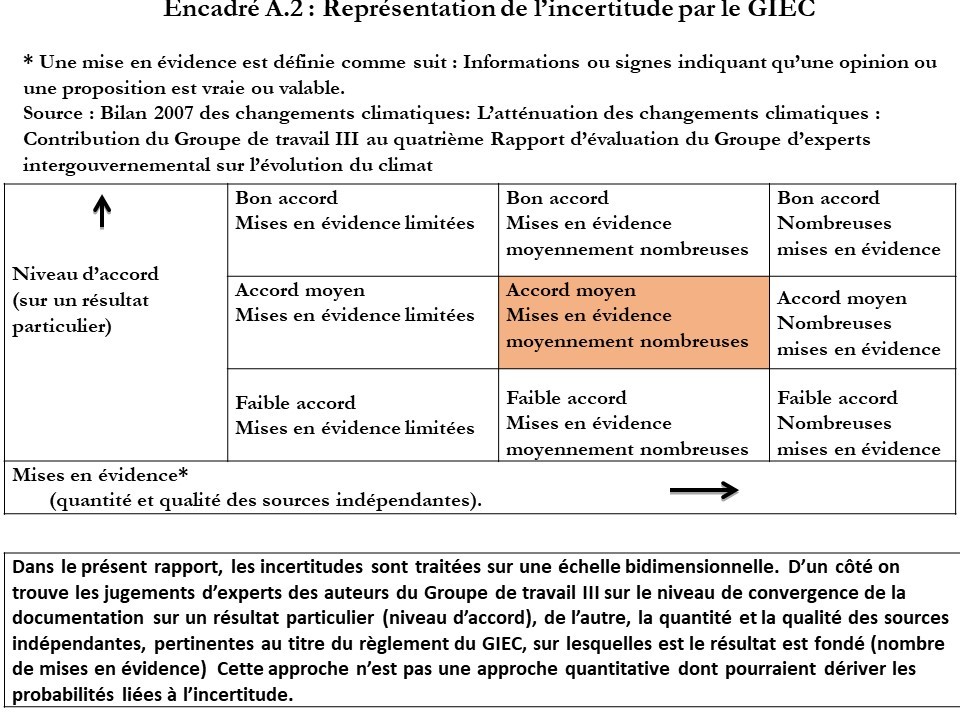Regional ForesightFinancial Foresight - Africa's Resilience to Climate Shocks2075
2075 CLIMATE FINANCE SCENARIOS
While the scale of uncertainties on global warming is enriched by the hypothesis on climate wars in Africa, the scientific controversy is shifting to the financial field. In the coming years, the financing required for the decarbonization of the global economy and the adoption of a new climate-compatible growth model will create new tensions on financial systems and bring them dangerously close to this critical threshold beyond which resilience disappears and instability becomes chronic.
Although the polluter pays principle and the principle of differentiated responsibility are generally accepted, no serious proposal manages to win the support of stakeholders, in particular African countries. Indeed Africa is the only continent whose development has always been limited by extreme climatic conditions with the drought and humidity that prevail in most of the continent. In addition to this "locking effect", there is now a "crowding out effect" with the requirement to reduce greenhouse gas emissions and a "path effect" due to the adoption of the new innovation model.
For a continent that includes the majority of low-income countries, developing in such hostile conditions can no longer be analysed as a challenge or an issue. Does this mean squaring the circle? It is in the light of these uncertainties that the financial scenarios outlined by Africa's development partners should be critically examined, and their models only take into account, at best, some visible costs.
The study begins by using the prospective approach to re-establish the hierarchy of disruption factors and uncertainties, at a time when the controversy over global warming is reaching Africa. The study underlines the weight of the climatic factor in the development of the continent with the limits imposed by drought and humidity on any productive activity on a large scale. Global warming and its consequences appear to be an aggravating factor for Africa that could well jeopardize any prospect of a rise in power in this region where some of the poorest countries in the world are concentrated. Then a critical assessment of the main initiatives to help Africa cope with these permanent shocks is presented. The adventures to set up a global fund for Africa's development are recalled.
The study also reviews attempts to establish the global market for tradable emission allowances and other offset mechanisms, including climate debt, carbon finance, global environmental fund and green fund issues. The experience of the recent financial crisis and the rescue plans implemented will be put to use, as will that of the "Finance Initiative". This global assessment - supplemented by a synthesis of financial forecasting work - makes it possible to deduce the fundamental properties of the financial and insurance system to be built in the face of shocks of global scale and asymmetric nature.
In its final part, the study adopts a regional and sectoral perspective to capture the particular situation of the extremely dry Sahelo-Saharan strip, the extremely wet "green lung" and the coastal and maritime zone. Finally, the role of regional integration in capacity development in the face of extreme events and chaotic disruptions will be examined in the light of experiences in infrastructure financing, environmental protection, combating deforestation and combating drought.
Africa| climate shock | chaotic disruptions| uncertainties| climate debt | financial initiative
Climate Finance Scenarios Resilience to Shocks
Financing Resilient Development for Climate Chocks: Foresight, Strategic Framework and Action Plan
1. INTRODUCTION
1.1 Policy framework: resilience to climate shocks and Africa's financial needs
1.2 Context: financing the fight against climate change
1.3 Purpose of the study
2. PROSPECTS FOR CLIMATE CHANGE FINANCING IN AFRICA
2.1. Factors in the fight against climate change
2.1.1. Heavy trends in socio-economic factors
2.1.2. Breaking Factors
2.1.3 Future uncertainties and key issues
2.1.4 The challenge for Africa: Financing - against all odds - development
2.1.5. Challenges 2
2.2. Financial scenarios and implications
2.2.1. Sketch of scenarios
2.2.2. The Shared Vision for Scenario-Tested Cooperative Action
2.2.3. The scenario-proof framework for financial negotiations
3. STRATEGIC OPTIONS AND COURSES OF ACTION
3.1. Strategic and financial partnership
3.1.1. Maintain the strategic interest of major GHG emitters and global leaders
3.1.2 Financial instruments
3.1.3. Players involved
3.1.4 Financial impact
3.2 Carbon Finance
3.2.1. Clearly integrating the global carbon finance market
3.2.2 Financial instruments
3.2.3. Players involved
3.2.4 Financial impact
3.3. Support for innovation and geoengineering
3.3.1. Securing financing for pioneering African entrepreneurs
3.3.2 Financial instruments
3.3.3. Players involved
3.3.4 Financial impact
4. RECOMMENDATIONS AND ACTION PLAN ELEMENTS FOR AFRICA
4.1. In the immediate future
4.2. In the short term
4.3. In the medium term
BIBLIOGRAPHY
ANNEXES 2
Appendix 2. Green Climate Fund Terms of Reference
Appendix 2. Methodology for scenario construction
CLIMATE FINANCE SCENARIOS
.
